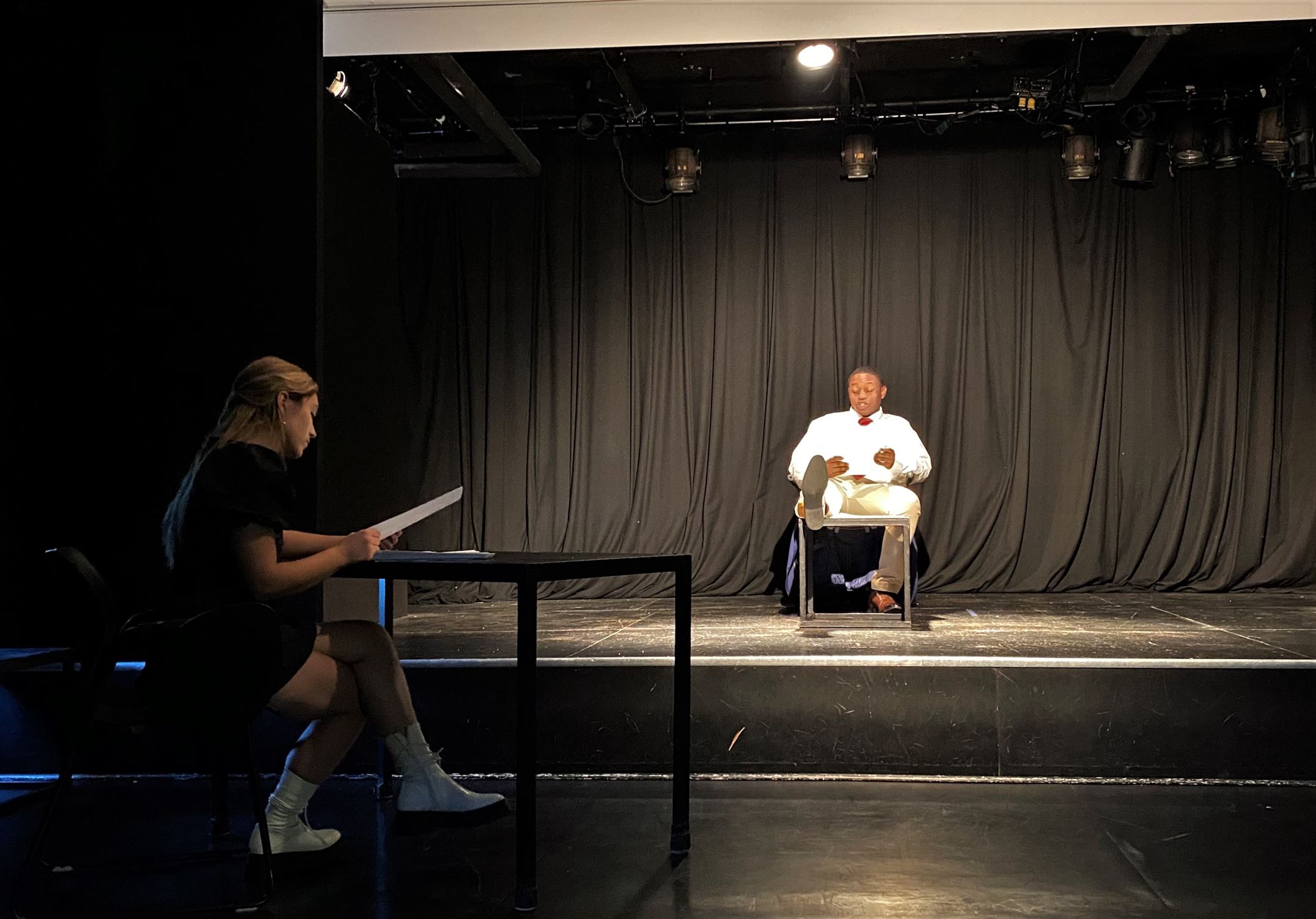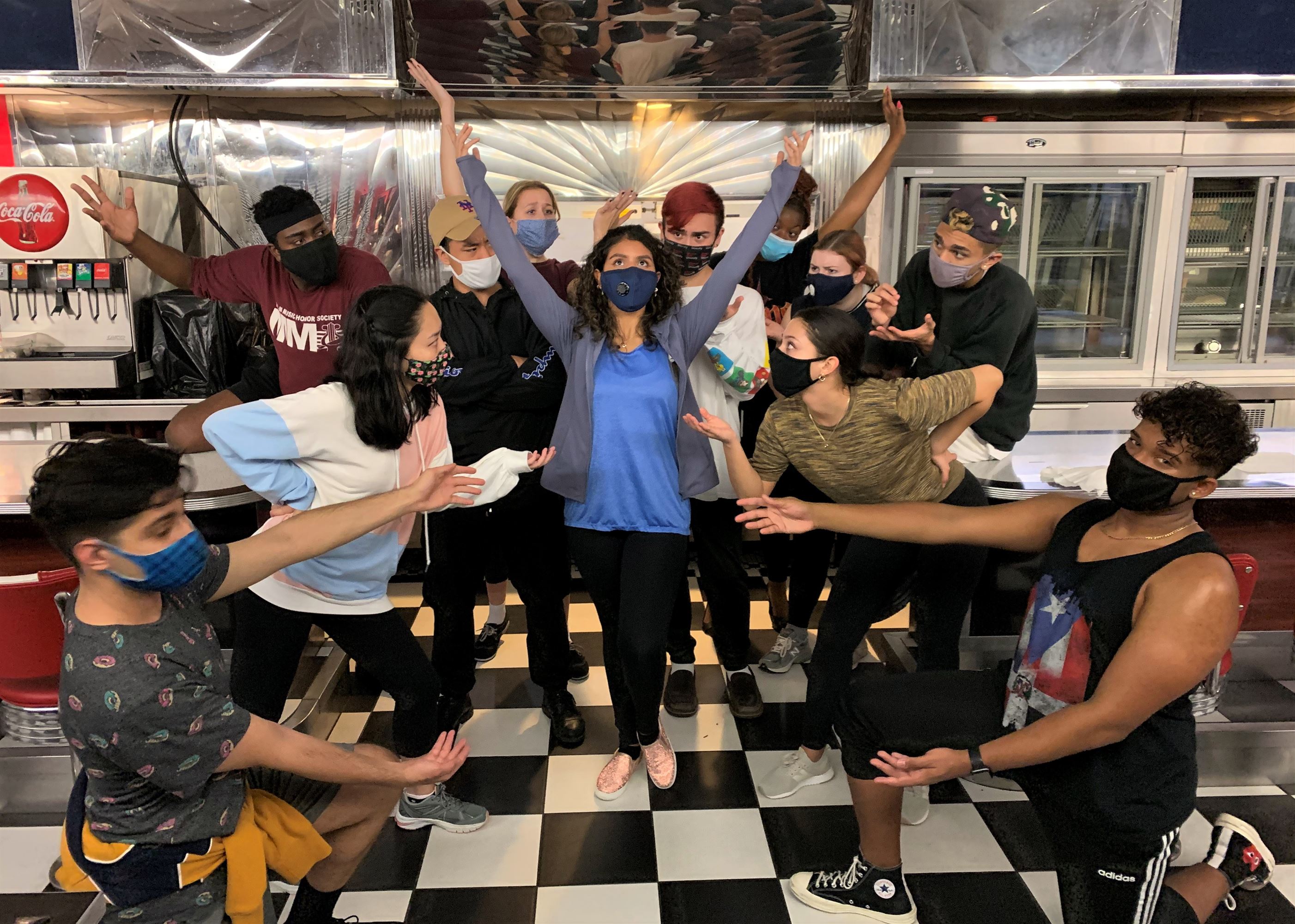Montclair State University’s department of theatre and dance is adapting to major changes in the time of the coronavirus (COVID-19) pandemic after a student tested positive for the new coronavirus in early November, during the production of “Working,” a 1970s musical.
Directed by Peter Flynn, an associate professor of musical theatre at Montclair State, “Working” is a 1974 nonfiction book by Chicago-based author, Studs Terkel.
Since the fall 2020 semester began, Flynn has been adhering to protocols to keep students safe during rehearsals at on-location sites on campus, such as the Red Hawk Diner, where a scene of a waitress carrying out her routine tasks was filmed.
Having more than 30 years of experience in the musical theatre industry, Flynn says resilience is the best quality trait a person should have in order to get through hardships. He also hopes that when his students test negative for COVID-19, they will pick up where they left off in their filming process and finish the production.
“What we learn is, we take what we have and we put our best foot forward. We move forward to what is next,” Flynn said.
Friday Afternoon Student Theatre (FAST) is also taking alternative approaches to keep their shows running during the pandemic. The program allows theatre studies students to direct and produce original work, plays and musicals in Life Hall.

FAST produced “It’s Not Seasonal,” written and directed by Mikaela Koran.
Photo courtesy of Erin Gaydos
Melody Appel, a senior theatre studies major and artistic director of FAST, discussed the changes made to productions during the spring 2020 semester, when the pandemic caused Montclair State to shut down and continue with remote learning.
“During the pandemic, it was definitely a challenge at first, just because last semester when the campus shut down, we were only able to produce shows through Zoom,” Appel said.
Appel is also in charge of the Instagram page for FAST, and has posted the Zoom rehearsals on the account.
“It was cool for a lot of people, because seniors who didn’t get the chance to have their work put up still had an avenue to do that,” Appel said. “We still had a good online audience to do that.”
Erin Gaydos is a senior theatre studies major and another artistic director of FAST.
“All of the productions are being pre-filmed and uploaded onto YouTube,” Gaydos said. “And so, with that we have face-to-face rehearsals with a certain cohort that the show is in.”
Students in rehearsals are split into two groups of Cohort A and Cohort B. One group is able to do in-person rehearsals during one week, while the other group does virtual Zoom rehearsals during the following week.
Elizabeth McPherson, a Montclair State professor of theater and dance and the director of the dance division, discussed how the dance division is handling hybrid classes and rehearsals.
“Most of the classes have less than 12 students at a time in [our large rooms],” McPherson said. “We are able to achieve this low number of students by breaking them up into the cohorts.”

Alexia Pereyra and Isaiah Robinson star in “Love Letters,” a fall 2020 production directed by Michael Allen.
Photo courtesy of Melody Appel
As for rehearsals, there are no more than 17 students in the large studio rooms in Life Hall.
“They are happy to have some in-person experiences and to be physically dancing together in the studio, rather than working alone in their kitchens or their bedrooms where it’s hard, space-wise,” McPherson said.
Heather Benton, an associate professor of theater and dance at Montclair State and the BFA program coordinator, agreed that this year has been the biggest historical change for the theater industry.
“It is really important to document how theater is evolving in new ways, because people may look back in 10 years from now and wonder how we were still able to make theater during this time,” Benton said. “This is a story that deserves to be told so that people will not forget what happened in this moment.”
While the changes to Montclair State’s dance and theater program may be unprecedented, those involved are going to great lengths to ensure a proper education for students. Hopefully, we will be able to see their hard work in person sometime in the near future.



